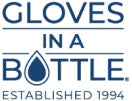
Searching for Vegan Skin Care? Here’s What to Look Out For
Share
If you were looking for vegan skin care ten years ago, you would have had to look very hard to find a product to fit that request. Now it seems everywhere you turn, there is a new vegan friendly product on the market ready for you to try. With the ever expanding list of ingredients used in skin care products, it can sometimes be hard to tell why a product isn’t vegan but knowing what ingredients to stay away from – and why – will make it that much easier for you to find your perfect vegan skin care companion.
What’s the Deal with Vegan Skin Care?
While a product labeled as ‘cruelty-free’ means that the product has not been tested on animals, a vegan skin care product means it has no animal derived ingredients in it. This can give you peace of mind, knowing that what you are buying does not come at the expense of a fluffy, innocent little animal.
When it comes to finding vegan products, because it’s such a popular trend these days, most products have labels that help us identify if it is vegan and cruelty free. Look for the ‘Vegan Society’, ‘Leaping Bunny’ or the ‘PETA’ approved accreditation on the packaging.
However, it’s always useful to know what ingredients can be found in your skin care product that could be animal-derived if a product does not have clear labels on it.
Ingredients to Look Out For in Your Skin Care Products
Here are some ingredients to avoid or make sure it’s plant-derived or synthetic if you want a vegan-friendly product:
Collagen - helps to plump up the skin and keep it looking youthful. (It’s found in hair, nails and bones which come from animals so there are no vegan options.)1
Glycerin - used for its silky and slippery feel to moisturize the skin. (Glycerin can be made from animal and vegetable fat so make sure it’s made from a plant source to be sure.)1
Arachidonic Acid - used to soothe eczema and rashes. (Arachidonic acid is usually extracted from animal liver and fat so not vegan-friendly.)2
Honey/Bee Pollen/Beeswax - used for a variety of purposes including anti-inflammatories, antimicrobials, emollients and for anti-ageing. (Any product made from honey, bee pollen or beeswax will not be vegan as these ingredients come directly from bees or are used by bees for their own survival.)2,4
Squalene - used as an effective moisturizer and facial oil, it hydrates and plumps up the skin. (Squalene used to come from shark liver oil but is now also made from plants and processed in a lab to create a vegan-friendly squalene. Make sure you know which one you are using.)2,3
Lanolin - used as an emollient. (Comes from the oil glands of sheep and is extracted from wool).2
Retinol - used to treat anti-ageing and acne. (It’s a molecule related to vitamin A which can be animal-derived, plant-derived or synthetically made so be sure your product contains vegan-friendly retinol.)5
Uric acid - used as an antioxidant and to protect the skin from free radicals. (It’s most commonly found in blood and urine, sometimes in other bodily organs.)6
Feel Good About the Products You Use
If you want your skin to feel good while knowing your skin care products are ethically sourced, using a vegan skin care product is a vital part of your daily routine. Skin MD Natural is an effective lotion that is completely vegan, cruelty-free and full of natural botanical goodness, making sure that your skin is well taken care of with high quality ingredients.
When it comes to your skin, don’t settle for second best. Use a product that your skin feels good in. Even more than that, use a product that you can feel good about using – guilt-free. It is possible to please your skin and your values in one go!
1 https://theveganreview.com/perfect-vegan-skincare-routine-all-skin-types/
2 https://www.peta.org/living/food/animal-ingredients-list/
3 https://www.glamourmagazine.co.uk/gallery/vegan-skincare-myths-busted
4 https://www.medicalnewstoday.com/articles/honey-for-skin#uses
5 https://coveteur.com/2019/11/13/expert-guide-traditional-natural-retinol/
